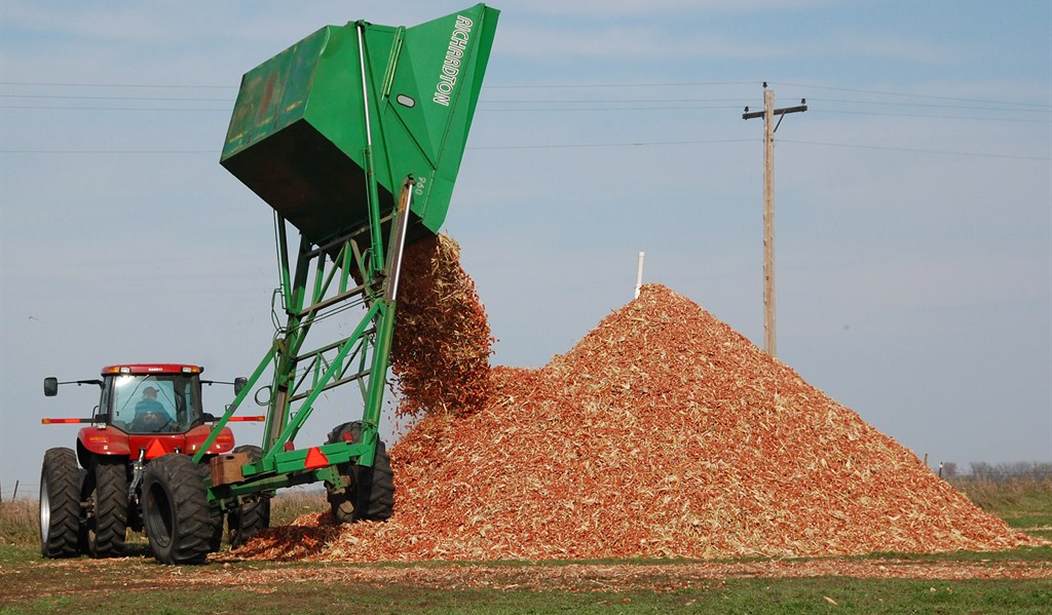To paraphrase a famous Mark Twain quote, suppose you passed a farm bill. And suppose you passed a food stamp bill. But I repeat myself.
Hard as it may be to believe, 80 percent of the farm bill being hammered out by the Senate and the House of Representatives is made up not of agriculture programs, but of food stamps. And if that sounds upside down to you, you clearly don’t live “inside the Beltway,” where Orwellian logic is the order of the day.
Why are food stamps rolled into the legislation? They’re included “purely from a political perspective,” Sen. Thad Cochran (R-Miss.), ranking member of the Senate Agriculture, Nutrition, and Forestry Committee, said earlier this year. “It helps get the farm bill passed.”
At least it used to. House members who had tired of this business-as-usual practice rebelled this year, and managed to pass a version of the farm bill that (unlike its Senate counterpart) took food stamps out. When The Washington Post editorialized about the House bill, it listed this among the legislation’s “good points,” adding:
“[F]or the first time in many years, representatives passed agriculture-support programs separately from food stamps, ending the old log-rolling arrangement between urban and rural delegations that insulated both programs from scrutiny on the merits.”
Unfortunately, this is Washington, where most politicians do their hardest work insulating programs from scrutiny on the merits.
Most Americans, however, favor the House’s action. In a “Food Demand Survey” conducted by Oklahoma State University, people asked whether they supported or opposed the following statement: “Separate the food stamp program from the farm bill and debate its merit separately from farm supports and subsidies.” Support came in at 73 percent.
Recommended
Separation isn’t the only issue though. The entire purpose of separating food stamps from agriculture programs is to achieve real reform. While there’s a lively debate going on regarding food stamp reform, that’s not the case when it comes to other troubling provisions of the farm bill. As has been the case since FDR was president, agriculture policy is a government- run behemoth that would make a Soviet central planner blush.
The most expensive single farm program subsidizes about 62 percent of the premiums that farms pay for crop insurance. Yet instead of finding ways to reduce the load on taxpayers, the House and Senate versions would expand this program.
Or take the sugar program. Sugar prices have generally been double the world price for decades. It’s largely due to the government dictating how much sugar can be sold, and imposing quotas on imports -- quotas designed solely to protect the market share of domestic producers. Every sugar-sweetened product costs more to make, adding to everyone’s grocery bills. Both the House and Senate versions of the farm bill keep the sugar program intact.
Meanwhile, as I’ve detailed in previous columns, the bulk of agriculture subsidies go not to the small, struggling farmers that most Americans envision, but to huge “agri-businesses” with annual incomes well in excess of $1 million.
Yes, the House and Senate are finally dropping the direct payments made for years to farmer of certain commodities, such as corn, cotton, wheat and rice -- subsidies so indefensible, the American Farm Bureau Federation has called for their repeal. But they’re adding new programs that could prove even costlier, such as one that would force taxpayers to cover even minor losses suffered by farmers.
“A farm bill should serve the interests of the American people,” writes Heritage Foundation farm-bill expert Daren Bakst. “This first starts with taking politics out of the bill.” That means considering food stamps separately and making other needed reforms. Raising another bumper crop of subsidies and bad policy is simply unacceptable.

























Join the conversation as a VIP Member